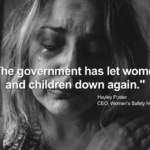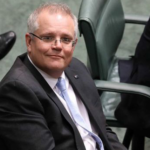Domestic Violence Workers Plead for Adequate Funding

Frontline and support workers are pleading for government to provide sufficient funding for domestic violence services, after reporting the ‘worst year on record’ for family violence.
Around the globe, domestic violence cases spiked during the COVID-19 pandemic lockdowns last year leading the United Nations to label domestic violence a ‘shadow pandemic’.
Australia was certainly not an exception. Domestic violence was.already at epidemic levels prior to the pandemic and the complexities associated with supporting women, children and families has only amplified since.
‘Shadow pandemic’
In New South Wales, Women’s Safety NSW surveyed 53 frontline specialists at 34 community services at the end of last year, finding rising rates of women experiencing domestic violence.
Forty-five per cent of respondents stated that their client numbers had continued to rise throughout the pandemic with 69% noting an escalation in abuse triggered by unemployment and financial pressures and 80% noting an increase in high risk cases with COVID-19 a key factor.
Dramatic spike in calls to hotlines
There was a dramatic spike in calls to national and state-wide domestic violence hotlines too, and according to other statistics, demand for a court advocacy service for NSW domestic violence victims rose 35 per cent last year, or in real terms, 73,000 calls for help.
Current funding is inadequate
While the Federal Government poured $150 million into services last year, the peak bodies in NSW and Queensland say the money has all but dried up and more funding is desperately needed, prior to the commencement of the next phase of the national plan. The current phase expires in 2022.
Despite the multi-million dollar injection into the sector during 2020, many of the people who are actually working with victims say that these funds simply addressed years of chronic historical shortfall, rather than the spike in numbers.
Little progress on curbing domestic violence
Federal, state and territory ministers responsible for women’s safety will meet later this week to discuss the replacement of the national plan, which has been in place since 2011 but, at a grass roots level shows very little progress in terms of ending domestic violence.
And it’s in the national interest to find real solutions. A recent federal parliamentary committee’s bipartisan report estimated the economic cost of violence against women and their children in Australia at $26 billion each year.
Impact in victims
Victims of domestic violence often end up socially disadvantaged – having to move home to escape the perpetrator.
They often have to rely on paltry social security entitlements while trying to provide a home and food for children.
In many cases, they are unable to commit to full-time employment, particularly if they are the primary caregiver, and often having to find money to pay legal bills while enduring court delays.
Many even end up homeless while they wait for social housing. And of course, the effects of all of this can be incredibly impactful on children.
One out of three women
According to the World Health Organisation ‘one out of three women’ in the world experience physical or sexual violence in their lifetime, making it “the most widespread but among the least reported human rights abuses.” But during times of crisis — such as natural disasters, wars, and epidemics — the risk of gender-based-violence escalates.
Many men also find themselves as domestic violence victims. They tend to suffer in silence, so accurate figures are hard to come by.
An inadequate system
One particular issue that has angered Domestic Violence service providers is the fact that many large businesses which benefited from JobKeeper payments during COVID won’t pay the money back, and yet it could, perhaps, be used to help victims.
Last month analysis from corporate governance advisory firm Ownership Matters found its way into the media. It showed that one-fifth of JobKeeper payments made to major listed companies in the second half of 2020 went to firms who actually grew their profits during the pandemic.
While these major corporations are under increasing pressure to repay the money, which was always intended to help the struggling small business sector during the pandemic, some are flatly refusing to. Annually, of course, there is also always a published list of large companies – mostly foreign-owned enterprises and multinationals – that get away with paying very little tax too.
It’s comparisons like these which make the entire system seem entirely inadequate. Is this really the kind of nation we want to be? A system of free enterprise is a cornerstone of democracy, but it shouldn’t come at the expense of basic human rights for other members of society who find themselves in need of help, particularly now, in extenuating circumstances created by the pandemic.
March for justice
Last month, thousands of Australian women marched in protest, calling on the Government to address the issue of violence against women, at home, at work and in our communities, after serious allegations of sexual assault emerged from Parliament House. Despite the fact that Scott Morrison’s delayed and ineffective response to the issue cost him a significant downturn in approval ratings, women are still intent on taking this particular moment to instigate real and meaningful change.
It’s clear that while more funding will go a long way towards helping women in need, there are broader cultural and social issues that need to be addressed before we will see the problem abating and these require innovative solutions, focus and a long-term commitment.
The situation certainly won’t be resolved overnight. But making homes safer for all family members should absolutely be a priority.







